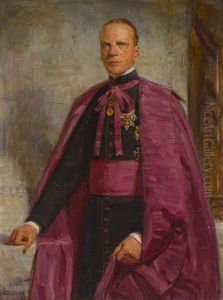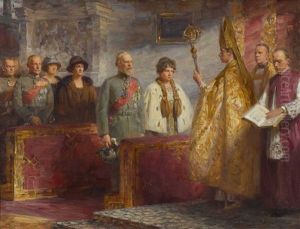Hermann Eissfeldt Paintings
Hermann Eissfeldt was a prominent German theologian and scholar of the Old Testament, born on September 1, 1903, in Nuremberg, Germany. His work significantly influenced the field of biblical studies in the 20th century, particularly through his approaches to the textual criticism, history, and theology of the Hebrew Bible. Eissfeldt's academic journey led him to study at several prestigious institutions, including the Universities of Erlangen, Marburg, and Leipzig, where he was deeply influenced by the scholarly environment focused on the critical study of the Bible.
Throughout his career, Eissfeldt held various academic positions, most notably at the University of Halle, where he served as a professor of Old Testament studies from 1930 until his retirement. His tenure at Halle was marked by the production of numerous influential works, including his seminal book 'Einleitung in das Alte Testament' (Introduction to the Old Testament), which remains a foundational text in the field. This work, along with others, showcases Eissfeldt's methodological rigor and his commitment to understanding the Old Testament within its historical and cultural contexts.
Eissfeldt's scholarship was characterized by his meticulous attention to the textual traditions of the Old Testament, including the Septuagint, and his interest in the apocryphal and pseudepigraphal writings. He was also noted for his exploration of the Canaanite background of Israelite religion, which contributed to the broader understanding of the ancient Near East's religious landscape. Despite the challenges of working during the tumultuous times of the mid-20th century, including the period of National Socialism in Germany, Eissfeldt maintained a focus on his scholarly work and contributed to the academic community through his teaching and writing until his death on September 23, 1973.
Eissfeldt's legacy in biblical studies is enduring, with his methodologies and conclusions continuing to be discussed and debated among scholars. His commitment to a historical-critical approach to the Bible has paved the way for subsequent generations of scholars to explore the complexities of biblical texts with nuance and depth. His contributions to the understanding of the Old Testament's formation, historical context, and theological dimensions have made him a central figure in the field of biblical studies.





